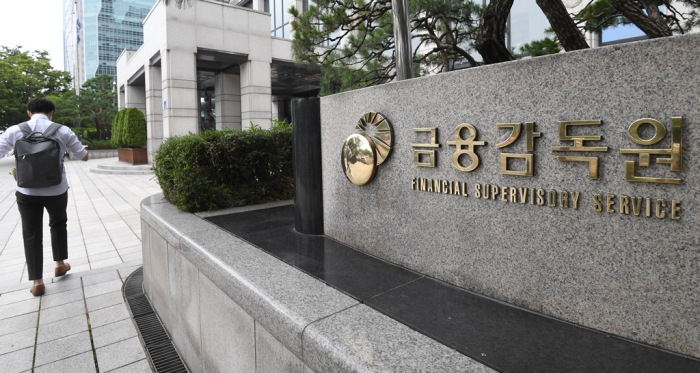Regulations
Korea plans wider crackdown on foreigners’ short-selling
The FSS is set to probe more than 10 global investment banks; the regulator has already been looking into a couple of cases
By Oct 31, 2023 (Gmt+09:00)
2
Min read
Most Read
LG Chem to sell water filter business to Glenwood PE for $692 million


KT&G eyes overseas M&A after rejecting activist fund's offer


Kyobo Life poised to buy Japan’s SBI Group-owned savings bank


StockX in merger talks with Naver’s online reseller Kream


Meritz backs half of ex-manager’s $210 mn hedge fund



South Korea’s financial regulator plans wider investigations into illegal short-selling trades by major foreign investment banks to ease concerns over the impact of such practices on local stock markets.
The Financial Supervisory Service (FSS) is set to probe all short-selling trades by global investment banks, which have frequently engaged in the practice since May 2021 when the ban on short-selling was partially lifted in the domestic equity market, the financial market watchdog said on Tuesday.
South Korea currently allows short-selling only on 200 large-cap shares on the main Kospi and 150 stocks on the junior Kosdaq while prohibiting naked short-selling, in which investors sell shares without first borrowing them or determining they can be borrowed, on all stocks.
“We aim to root out global investment banks’ intentional illegal practices of naked short-selling, making them take responsibility, through probes on all cases,” the FSS said in a statement. “We also plan to encourage major global investment banks to improve their systems to fundamentally prevent naked short-selling to restore short-selling market confidence.”
The authority is poised to establish a special team of 20 investigators for the probe from Nov. 6 while planning to cooperate with regulators in Hong Kong and Singapore from the first quarter of 2024.
Earlier this month, the FSS decided to slap Hongkong and Shanghai Banking Corporation Ltd. (HSBC) and Bank BNP Paribas with the largest-ever fines for naked short-selling trades totaling 56 billion won ($41.5 million) on 110 stocks.
TO PROBE MORE THAN 10 GLOBAL INVESTMENT BANKS
The FSS plans to investigate more than 10 foreign investment banks that most frequently engage in short-selling trades in the country, according to the watchdog’s officials.
“We have already been looking into a couple of cases and the probes are likely to produce tangible outcomes later this year,” one of the officials said.
Until now the regulator had focused on individual stocks, not investment institutions when it probed naked short-selling.
The authority plans to closely investigate end-clients of investment banks, actual investors of short-selling trades, in the process of probes over those banks. The FSS aims to swiftly launch investigations when investment banks conduct massive short-selling trades on stocks before bearish news is released or when the regulator detects such trades are intended to hurt stock prices.
“Global investment banks play the role of brokerages only and do not take profits or losses from stock price volatility,” said another FSS official. “We will expand investigations to end-clients in the probe process if the banks carry out short-selling trades amid negative factors or if stock prices fall due to such trades.”
The authority warned foreign investment banks of stricter rules on illegal short-selling practices as more than 80% of such trades were executed by them.
Domestic investors, especially individuals, have criticized short-selling trades by foreign investment banks, saying such trades have dampened local stock markets and some shares.
Write to Han-Gyeol Seon at always@hankyung.com
Jongwoo Cheon edited this article.
More to Read
-
 Korean stock marketHSBC, BNP Paribas to be fined for naked short sales in S.Korea
Korean stock marketHSBC, BNP Paribas to be fined for naked short sales in S.KoreaOct 15, 2023 (Gmt+09:00)
3 Min read -
 Korean stock marketKorea warns foreigners of stricter rules on illegal short selling
Korean stock marketKorea warns foreigners of stricter rules on illegal short sellingSep 07, 2023 (Gmt+09:00)
3 Min read -
 BatteriesEcoPro to log record-high foreign net purchases in July
BatteriesEcoPro to log record-high foreign net purchases in JulyJul 23, 2023 (Gmt+09:00)
2 Min read -
 BatteriesKoreans’ love for EcoPro stock may jeopardize short-sellers
BatteriesKoreans’ love for EcoPro stock may jeopardize short-sellersApr 12, 2023 (Gmt+09:00)
4 Min read
Comment 0
LOG IN


